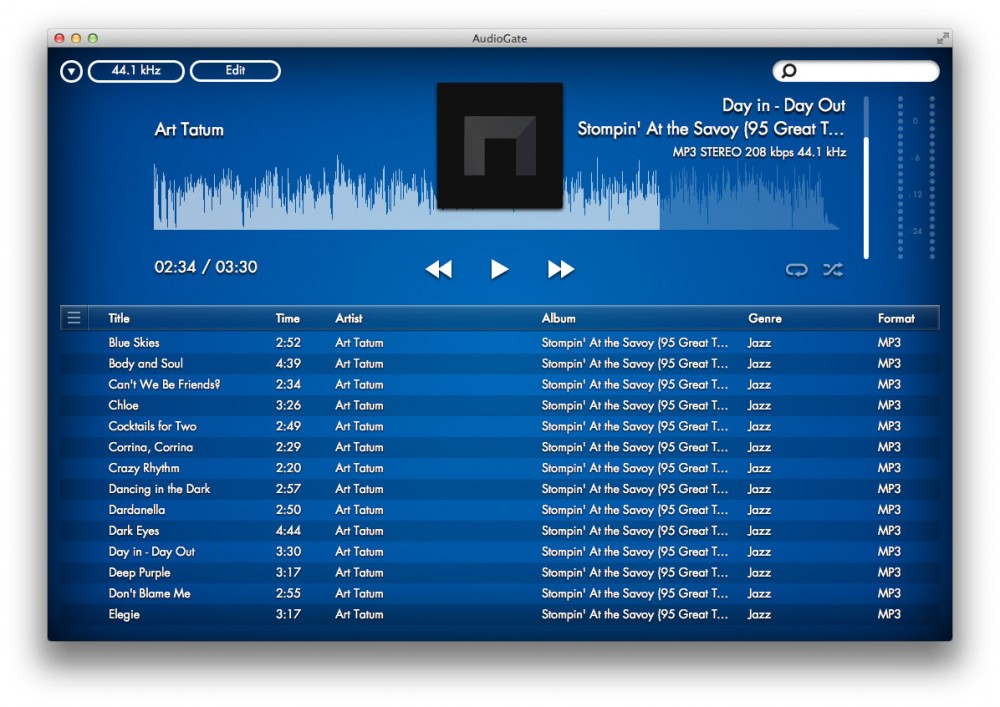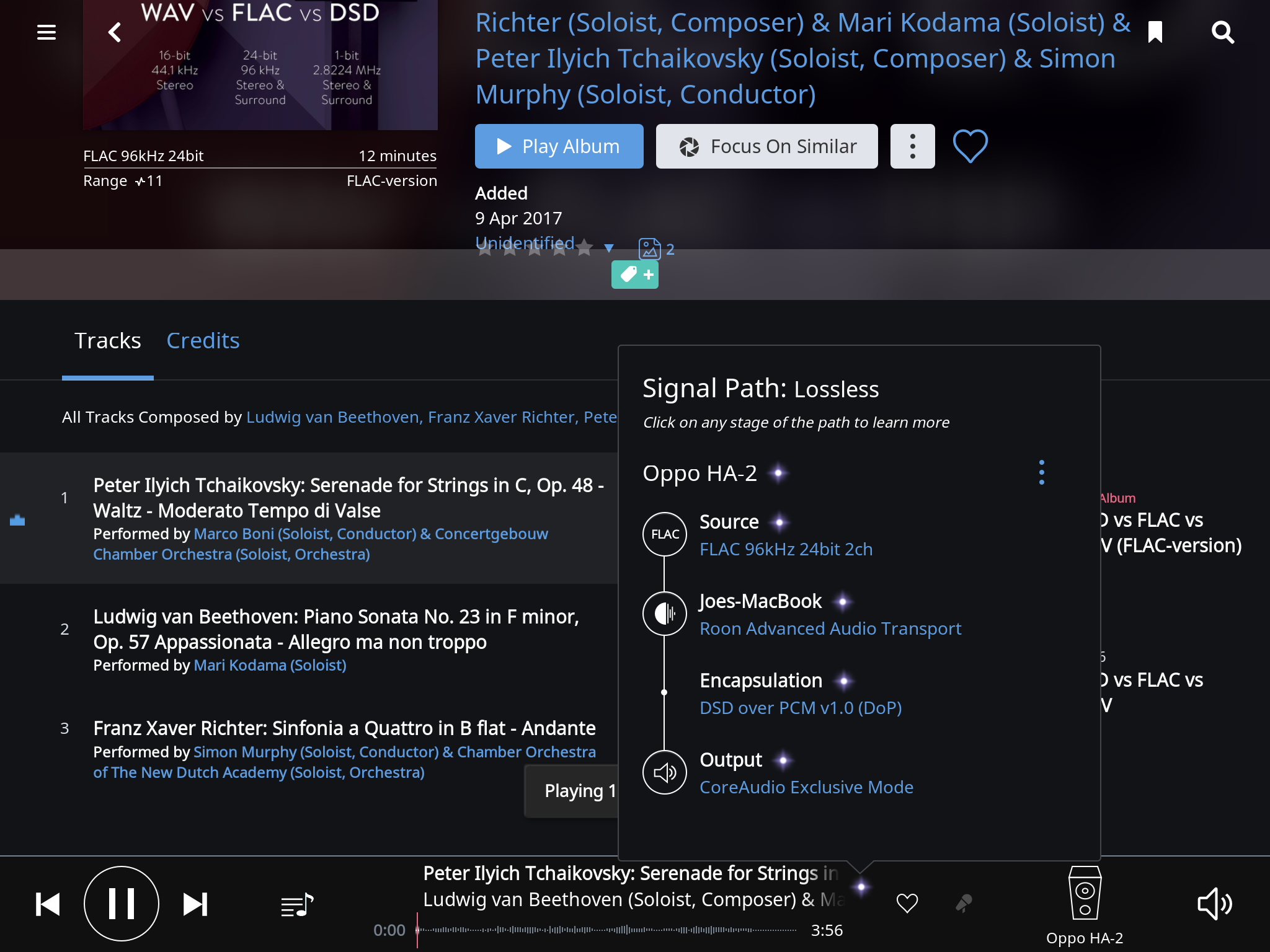The latest release of Decibel, announced on June 18, 2014, supports stereo and multichannel native DSD playback over ASIO for all sampling rates from DSD64 to DSD256 (Quad DSD). Native ASIO DSD on Mac offers many benefits for audiophile-grade music playback: True asynchronous operation. Mac OS X includes several voices built-in, but they are somewhat limited, and only US English. If you'd like more voice talent, including different accents and languages, you can download and try the high quality voices provided by Cepstral LLC or Infovox iVox.Get more information about them on the product page Voices. BitPerfect is a simple, easy to use, audiophile grade music player that works in conjunction with iTunes to deliver the highest possible sound quality. Localization included in Japanese, French, Dutch, Danish, and Russian only Requires OS X 10.8 or higher. Requires 64-Bit CPU. Unobtrusive, minima.
Guaranteed Native DSD and DXD files
NativeDSD.com is closely policing the origins of recordings and we only allow the DSD original files, and analogue direct transfers to DSD and DXD to the platform.
What you will need to play DSD and DXD files on a computer
You will need a computer, stand-alone music server, or a portable device to play DSD files. We will start off with computer based options:
Desktop Software Players:
- Roon: Stereo and Multichannel (www.roonlabs.com)
- JRiver: Stereo and Multichannel (www.jriver.com)
- Audirvana Plus 2: Stereo and Multichannel (www.audirvana.com)
- In iTunes you can play DSD files when using BitPerfect and DSD Master (Read more in our Quick Guide) [MAC only]
- There are many more applications that can play DSD files, find them here
iPhone, iPad and Android DSD playback apps
- More mobile appscan be found here
Digital to Analogue (D/A) Conversion: Output Hardware
When using computer (and portable) based playback, you will need a device that converts the digital (DSD Data) information to an Analogue signal, in other words, a DAC. There are literally hundreds of DAC's on the market, and they are available in a wide variety of prices. By the way, NativeDSD also sells DAC's in the Gear store.
You connect the DAC to your computer or portable device commonly with a USB-cable. From the DAC you plug in your Headphones or send the signal to your amplifier and speaker system.
We created the DSD Database to give you a full overview of what is available in both Hardware and Software. It is updated weekly and contains a list of DACs with their list price, performance and link to manufacturer's website as well as playback Software / Conversion software lists.
Here is a cool tip: when you select the letter above the 'price' column in our database, you can sort the DACs for pricing. It looks like this. 👍
If you already own a PCM-only DAC
If you already own a DAC, but is does not support (native)DSD playback:
- You can still play DSD files if you:
- Use a software player that understands a DSD bitstream and:
- can down-convert the music as it is playing the file.
This way you are investing in original quality audiofiles; great for when the time comes you are upgrading your DAC and don't want to re-purchase the same music in a higher resolution!
Different Types of DSD files
Dsd Software Player
Now, we'll take a look at what kind of files are available and what they mean. Just like any other audio format, DSD files also use a three character extension. DSD files come in either a .dff or .dsf extension.

The .dff file extension (Direct Stream Digital Interchange File Format (DSDIFF)) is a data format used to store audio data and was developed by Sony and Philips and used for its Super Audio CD (SACD) technology.
Dsd Software For Mac High Sierra
The .dsf file stores audio data with ID3v2.2 (or higher version) tags. A .dff file is the same thing, but without the possibility to store tags within the file.
Files at NativeDSD are in .dsf only
At NativeDSD.com we only sell DSD files in the .dsf format, and carefully tag the files to make sure they show up in your screen with the correct artist and album information.
Differences between DSD and PCM
There's no relationship between any DSD bit rate, and any PCM sample rate. Any DSD bit rate can be converted (remodulated) to any PCM sample rate, and visa versa. DXD (352.8kHz) is the highest professional PCM rate employed today, which is based on 44.1 kHz (44.1 kHz times 8, or more commonly referred to as 8fs).
Dsd Software Solutions
DSD and PCM are completely different digital encoding standards. PCM is a series of completely independent binary coded samples representing actual numerical arithmetic values of signal level at the time of the sample. DSD is a modulated bit stream comprised of a population of (clock) bits whose density is proportional to signal level, and unlike PCM, DSD contains no numerical values. Recording in DSD256 does not imply any PCM derivative of any sample rate.
- With PCM, think of movie film made of individual stand alone frames, each containing a separate picture (or signal value) in a sequence of separate pictures.
- With DSD, think of a picket fence with more or less pickets present, proportional to the original signal level.
The word 'Upsampling' applies only to PCM to (another form of) PCM, which contains samples to be rate multiplied. Converting any DSD rate to another involves remodulation, not just simple multiplication and interpolation as with PCM to PCM.
Dsd Software For Mac Software
DXD Files
DXD is something else than DSD. DXD is always only offered in 1 rate. We see DXD files as a separate product. Some people prefer DXD files over DSD because they sound slightly better/different, and vice versa. These will sound different on any setup and is completely taste-specific.
If you end up with a DSD version of an album that you'd rather like to hear in DXD, we are always willing to accommodate that. Shoot us a message.
DXD is another name for 32/352.8k PCM and we ship all tracks tagged, so FLAC is the PCM container we use (as do most online music stores). DXD is the only PCM sample rate we sell, and ONLY when the recordings are native to DXD (in this case, DXD was used to edit the DSD recording so we were able to get the DXD version... (a purist would say it is even more direct than the edited DSD). Sometimes, DXD files come in a .wav container too.
Additional Reading
- The subtle differences between PCM and DSD
Dsd Software For Mac Os

